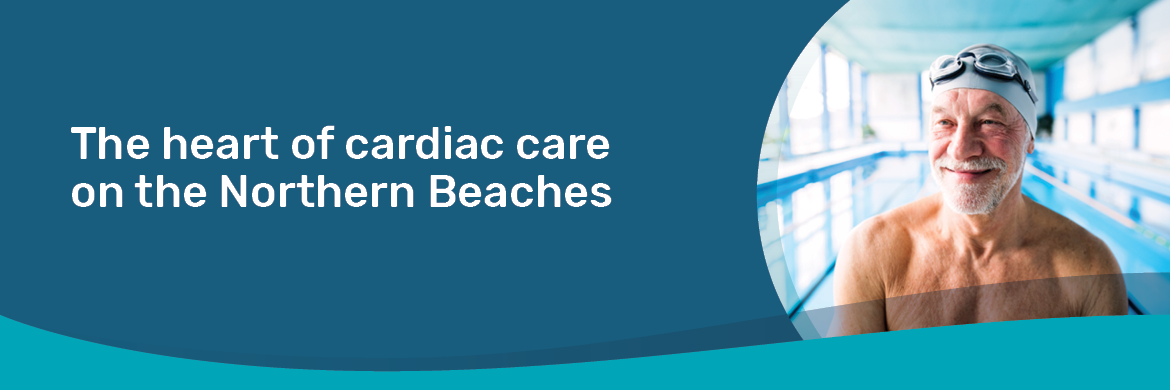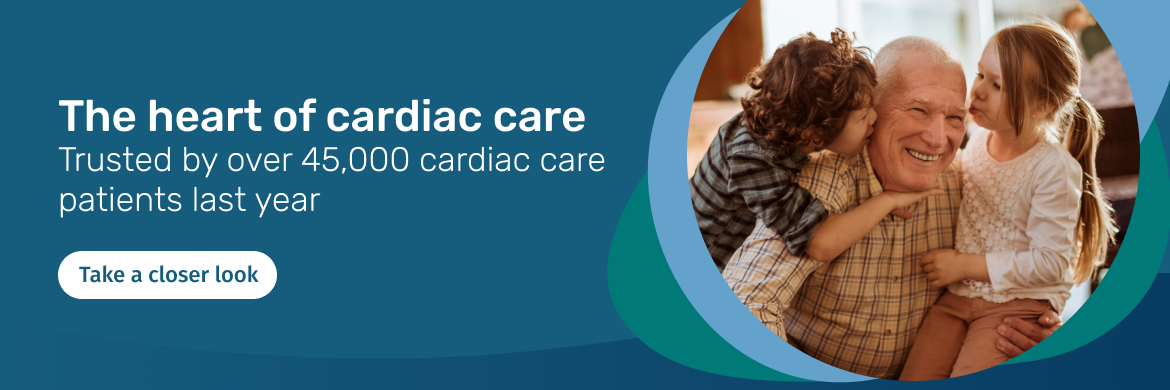
Cardiology Service
We perform the most cardiac procedures on the Northern Beaches thanks to more than 20 cardiologists treating their patients here. Yet it’s not just the number and complexity of surgeries that make us the heart of cardiac health care - the equipment and technology are world class.
We provide integrated cardiology care incorporating diagnostic, therapeutic and procedural services in our leading edge catheter labs, hybrid theatre designated cardiac surgery theatre. All our cardiac services are supported by our coronary care unit and 20-bed intensive care unit.
We provide our patients with additional services including:
- Access to dietitian services
- Perioperative medicine service appointment with a specialist for people with complex medical issues to help assess suitability for surgery
The private experience
Expect better when you’re with us. Patients enjoy the privacy of a large single room with ensuite. And you’ll love the private dining menu, created by our Executive Chef, where you’ll enjoy nutritious, delicious meals.
Next steps
If your GP has recommended more complex cardiac care, ask for a referral to one of the state’s leading specialists. Tell them that you prefer to be treated at Northern Beaches Hospital, the heart of cardiac care.
Our world class cardiologists and cardiothoracic surgeons treat a range of heart conditions and related symptoms.
If you are experiencing any of the symptoms listed below:
- Chest pain/angina
- Palpitations- racing or irregular heartbeat.
- Shortness of breath
- Dizziness or fainting
- Signs of heart failure – swollen ankles, unable to lie flat or waking short of breath
You should contact your GP or present to our emergency department for assessment.
If you require urgent attention dial 000 (triple zero) and ask for an Ambulance.
Heart disease remains the main cause of death in Australia. Northern Beaches Hospital is one of the leading cardiac hospitals in New South Wales, where the state’s most sought after cardiac providers fight this statistic by dedicating themselves to the best possible care.
It's safe to say that you, the patient, are at the heart of everything we do.
Click here to download our cardiac brochure
Procedures we offer:
Coronary angiography is the process of taking images of the coronary “heart” arteries by passing a thin tube called a catheter through an arm and leg artery to the top of the heart. A small amount of contrast is injected and an x-ray camera outside the body takes images.
Coronary angioplasty and stenting are procedures to reopen blocked or significantly narrowed coronary arteries. This may involve inflating a balloon or placing a stent (an expandable metal scaffold) into the artery to restore blood flow.
Angiography and stenting are commonly performed under local anaesthetic and IV sedation without the need for a general anaesthetic.A pacemaker is a small device usually inserted under the skin of the upper chest and attached to a pacing wire that paces your heart when your heart is unable to do so adequately. This procedure is commonly performed under local anaesthetic without the need for a general anaesthetic.
Coronary bypass surgery, otherwise known as coronary artery bypass graft (CABG) surgery is a procedure that uses another artery or vein to restore blood flow to your heart muscle by bypassing the area of blockage or narrowing.
For severely narrowed or leaking valves these may be repaired or replaced. This can be achieved with standard surgery, less invasive surgery or via minimally invasive catheter-based procedures. To replace a heart valve, your doctor may remove the heart valve and replace it with a mechanical valve or a biological tissue valve.
Structural heart procedures provided by Northern Beaches Hospital include:
- Patent foramen ovale closure (PFO)
- Atrial septal defect (ASD)
- Ventricular Septal Defect closure (VSD closure)
- Left Atrial Appendage Occlusion or Closure
A transesophageal echocardiogram is a type of echocardiogram (heart ultrasound) that takes images from behind the heart. This is achieved by passing the probe down the back of the throat (very similar to an endoscopy or gastroscopy procedure). The images obtained are of better quality than a normal echocardiogram due to the lack of lung (air) between echo probe and heart.
CTCA uses computed tomography (CT) scanning to take detailed images of the heart. It is a quick (scanning takes 15 seconds) and easy test, without the need for invasive procedures, to determine if there are any significant narrowing in the heart arteries.
DC cardioversion (DCCV) is used to treat irregular heart rhythms - commonly atrial fibrillation. The procedure involves a general anaesthetic and placement of electrodes on the chest. An electrical impulse or shock is delivered to return the heart rhythm to normal.
An implantable loop recorder is a convenient and easy way to obtain long term ECG recording by implanting a tiny paperclip sized device under the skin. This device can record ECGs for 3 plus years and is generally suited for patients with unexplained fainting and strokes/ministrokes of unknown cause. Your doctor can remotely monitor your heart rhythm via a mobile link that you keep in your home.

